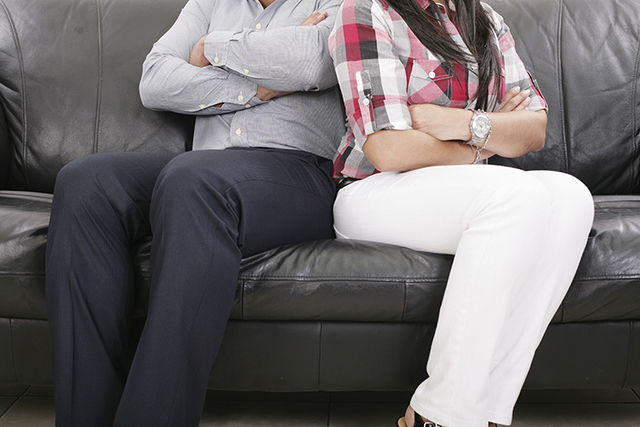Learning to hurt so that we don’t harm
I have to hurt someone ... so that I don’t harm that same someone.
This language of “hurt/harm” came to me just this week from the mouth of a colleague and clinical supervisor. She’s a veteran of the craft of talk therapy. Wise, wise, wise.
“I promise patients that I will not harm them,” she says. “But I cannot promise that I will never hurt them.”
To hurt someone … to harm someone — the juxtaposition of these two words moves me. Beckons to me. Teaches me. Sobers me. Fills me with unease.
OK, scares me.
Apparently I have to find the courage to hurt people when not to hurt them means I would harm them. Or at least not help them.
I hate hurting people. It hurts me to hurt people. That might be evidence of three things:
1) I am in possession of an authentic value about the worth of a human being
2) I have a well-developed empathy
3) I don’t tend toward either the callous or the sadistic. That is, I take no pleasure in hurting someone.
But, my teacher’s discussion of “hurt/harm” alerts me to a fourth reality: ego. You’ve heard of bloodhounds? Well, I have this pack of Ego Hounds in my gut that immediately start to howl the moment they get wind of ego.
My ego. And they follow the scent trail until they tree the beast — cornered, cowed and snarling in the branches.
I’m saying I’m loath to be seen as something other than kind, warm, nice, nurturing and accommodating. It is an embarrassing ego-death for me to have hurt someone.
But my teacher says we can promise only not to harm. Never not to hurt. Because sometimes the only way not to harm is to hurt.
I think of childrearing. Good parents insist on accountability. And accountability hurts. Even humiliates. Good parents set limits and enforce sanctions. Ouch! And good parents are willing to hurt their children so as not to harm them with permissiveness. So as not to harm them with implicit permission to entitlement and inflation.
Good parents allow themselves to be hurt, too. When children react to good, consistent discipline — from sullen to indignant to ad hominem contempt — good parents “lay down” on these energies willingly, as if laying down on a grenade in a foxhole. It hurts. But good parents absorb the pain rather than indulge the ego-need for affection and admiration.
I don’t need your affection. I need your obedience.
When an adolescent (perhaps especially a boy) begins to push away from a parent’s (perhaps especially a mother’s) closeness, he is trying to say “goodbye.” It’s a vital and important goodbye. Necessary if he is to arrive at the destination of manhood. A good mother feels her grief at this goodbye, and allows it, because to dodge this hurt will harm the boy. (Not to mention increase the chances of him at age 25 still ordering pizzas in his parents’ living room.)
A good friend must sometimes hurt you with truth, so as not to harm you with the complicity of silence.
A loving wife or husband must sometimes say a loud, fierce “no” to an unlovely part of your personality. For there is no meaningful definition of marriage that does not include boundaries and accountability. And sometimes the choices are hurt my beloved … or abandon my beloved.
We flat disagree. We chide. Reprove. Admonish. Relinquish. Say “no.” Detach. In some cases protest. Bark. Say “Stop!” We refuse. We say, “You are utterly wrong to think/feel that way.”
Such things may hurt our beloved. But to not risk this hurt would harm our beloved. Maybe harm ourselves. Certainly threaten the marriage with undigested, erosive energies of antipathy and declining respect.
I think of the ancient Hebrew story of Jacob wrestling all night with God. Yes, wrestling. What an audacious image!
As the sun rises, Jacob brazenly grabs God and shouts into God’s face: “I will not let you go until you bless me!”
And God blesses Jacob … by reaching out with one finger and pushing his hip out of socket. The blessing is the injury. Jacob is hurt. He would limp for the rest of his life.
A religion willing to admit no one gets close to God without being sometimes hurt by that God — now that’s a serious religion!
Maybe anything less would have harmed Jacob.
Sometimes we must find the courage to hurt someone, lest we harm that same someone.
Steven Kalas is a behavioral health consultant and counselor at Las Vegas Psychiatry and the author of “Human Matters: Wise and Witty Counsel on Relationships, Parenting, Grief and Doing the Right Thing” (Stephens Press). His columns appear on Mondays. Contact him at 702-227-4165 or skalas@reviewjournal.com.

















